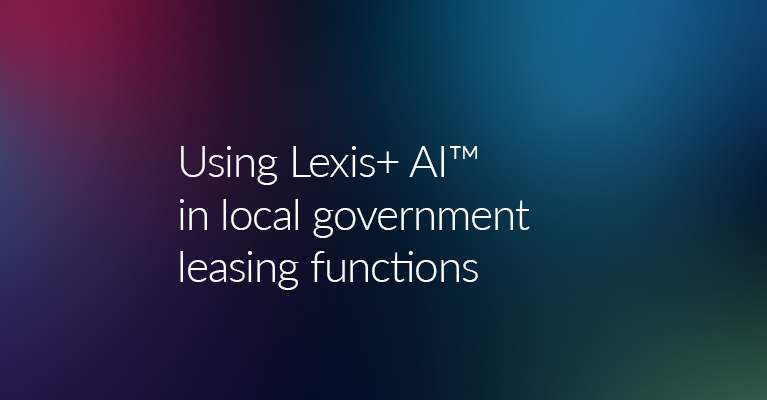Latest Articles
The Importance of Background Checks for Company Directors
A board of directors plays a critical role in shaping a company’s strategy, maintaining relationships with shareholders, and safeguarding the company’s reputation. Appointing a new director may bring welcome...
Bird v DP: A Landmark Ruling on Vicarious Liability – Where to...
Chloe Silvester , Head of General Practice, Practical Guidance Stephen Tuck , Legal Writer, Practical Guidance Personal Injury Victoria Ben Newling , Legal Writer, Practical Guidance Personal Injury NSW...
Security of Payment (SoP) Case Developments 2024
Jennifer Raphael , Senior Legal Writer, Practical Guidance Construction, LexisNexis ® In 2024, several pivotal decisions were made across New South Wales, Victoria, and Queensland concerning Security...
Expected Changes in Australian Construction Law 2025
Jennifer Raphael , Senior Legal Writer, Practical Guidance Construction, LexisNexis ® In the ever-evolving landscape of construction law, 2025 promises to be a pivotal year for legal practitioners...
Understanding the recent changes to casual conversion rights...
Jada Lam , Practical Guidance Legal Writer – Employment and WHS The Fair Work Act 2009 has been updated with the 'Employee Choice Pathway,' offering new rights for casual employees. Read on for essential...

By Kate Bartlett, Senior Legal Writer, LexisNexis® Australia, Practical Guidance, Property
Local government officers responsible for leasing functions are required to use their specialist leasing skills and experience to assess leasing proposals, compile their analysis of leasing proposal into reports to council about leasing decisions to be made, and to make recommendations to the council about those leasing decisions to be made by the council. This article outlines three ways that Lexis+ AI could assist you with these critical aspects of your role.
Upload, summarise and compare lease proposals
Local government leasing officers are often called upon to make a recommendation to the council about which leasing proposal to accept for a particular premises that the council is offering to lease.
Getting to the point of making a recommendation is a lengthy process, involving many distinct steps. Labour and time-intensive steps include summarising the numerous leasing proposals received for the premises and assessing each proposal against key selection criteria or deriving a matrix to be used to highlight the benefits and risks of each. You are then required to inform the council in a written report about the aspects of each proposal, and to make a recommendation to the council about which proposal to accept.
These steps can require hours of reviewing each lease proposal, recording the details of each proposal into a spreadsheet or other document enabling ready side-by-side comparison of key factors, and then summarising each proposal and the reasons for making your recommendation to the council.
When it comes to summarising and comparing different lease proposals, Lexis+ AI can be a very valuable and powerful tool for local government officers. From uploaded documents, it can identify and analyse the terms, conditions, and financial details of each proposal, identify the key similarities and differences between each proposal, and generate a comprehensive written report that highlights the strengths and weaknesses of each proposal, making it easier for the proposals to be evaluated and compared side-by-side, or assessed against a matrix. You can prompt Lexis+ AI to highlight particular factors within each proposal in the written report that it produces. This can all be done within minutes, saving you hours of manual effort, and allowing you to focus on the more strategic aspects of those steps and processes.
Asking a question about a leasing matter
As you are reviewing the lease proposals, you might have a question about whether an aspect of a proposal raises a legal issue that will require further consideration. For example, you might want to know whether your jurisdiction’s retail tenancy legislation would apply to a lease to a community group that would run a tool library from a community centre, from where the community group would also sell refurbished tools and appliances to the public. You can use Lexis+ AI’s vast knowledge base, grounded in quality LexisNexis legal content, to quickly retrieve relevant information about this query, significantly reducing the time that you or your legal officers spend on research. Instead of sifting through numerous sources, you can simply query Lexis+ AI for the specific information you need, saving you valuable time and effort.
Drafting a report about a leasing matter
After completing the various steps in your assessment processes, you will be required to prepare a written report to the council that is in the set format used across your council.
By prompting Lexis+ AI to do so, you can quickly produce the first draft of the whole or a part of a report in the style and format that you require. For example, if all recommendations in a report to the council must be set out in a format that specifies the various steps that officers will be authorised to complete after the council has made its decision, you can prompt the AI assistant to produce the output it drafts for you in that format. Similarly, if you are required to provide an executive summary at the start of an item of business to be considered by the council, you can provide the AI assistant with the relevant text from the draft report and ask it to produce an executive summary for you. In either case, you can prompt the AI assistant to draft the material you need in the style that you need it.
Key takeaways
Professionals from all industries are adopting AI tools like Lexis+ AI into their workflows and are seeing significant benefits from doing so. Leasing officers in local government are likely to see similar benefits when leveraging AI tools like Lexis+ AI to complete the important administrative processes that they regularly undertake. Leveraging AI tools like Lexis+ AI for these purposes will give you more time to focus more on the higher-value strategic tasks of your role – lease negotiation, relationship management, compliance and enforcement.